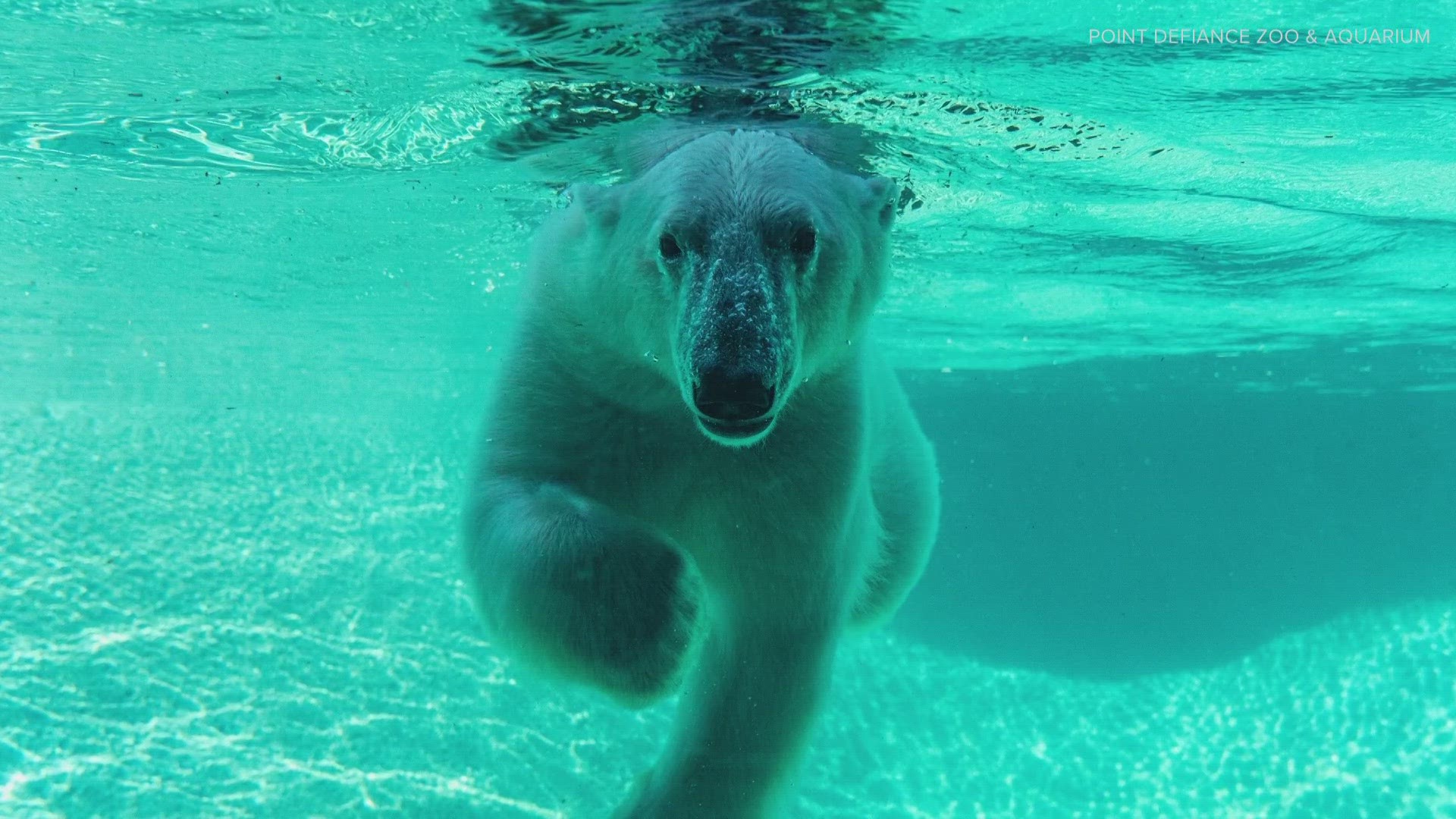TACOMA, Wash. — The Point Defiance Zoo and Aquarium says twin polar bear cubs Astra and Laerke are settling into their new home in Tacoma and will debut to the public on June 15.
The zoo provided access to them Monday, as curators began to learn their personalities. Astra, at 580 pounds, jumped and played in her new environment as 300-pound Laerke got a nap in. Zookeepers are still getting to know their favorite foods, habits and ways to train.
"They're still babies, they're still growing, so we're not entirely sure what they're going to need to eat so we're kind of letting them drive the ship here and they're telling us what they need," Assistant Curator Sheriden Ploof said. "Laerke is actually a little more independent than Astra, she seems to enjoy her alone time sometimes and she'll come out and play with toys in the water by herself, whereas Astra really would love it if Laerke would come and play with her all the time, and so she's a little less independent but very curious."
Days after the bears were born, Laerke had a medical emergency and was separated from Astra to receive constant, life-saving care. More than two years later, they were reunited. According to the Point Defiance Zoo and Aquarium, the "Association of Zoos & Aquariums polar bear population experts recommended the bears’ move to Tacoma to support the sustainability of a healthy, genetically diverse and demographically varied polar bear population."
Updated exhibits will educate visitors about the species and the impacts of climate change on their habitats. Nonprofit Polar Bears International says the zoo will also participate in research to answer questions that could contribute to conservation efforts.
"[The Point Defiance Zoo and Aquarium has] a commitment to polar bear research, education and climate action programming, and so it's so important for bears under human care to be acting as ambassadors for their wild counterparts," Polar Bears International Director of Conservation Programs Marissa Krouse said. "To be able to participate in observational and noninvasive research is so important at zoos and aquariums."

